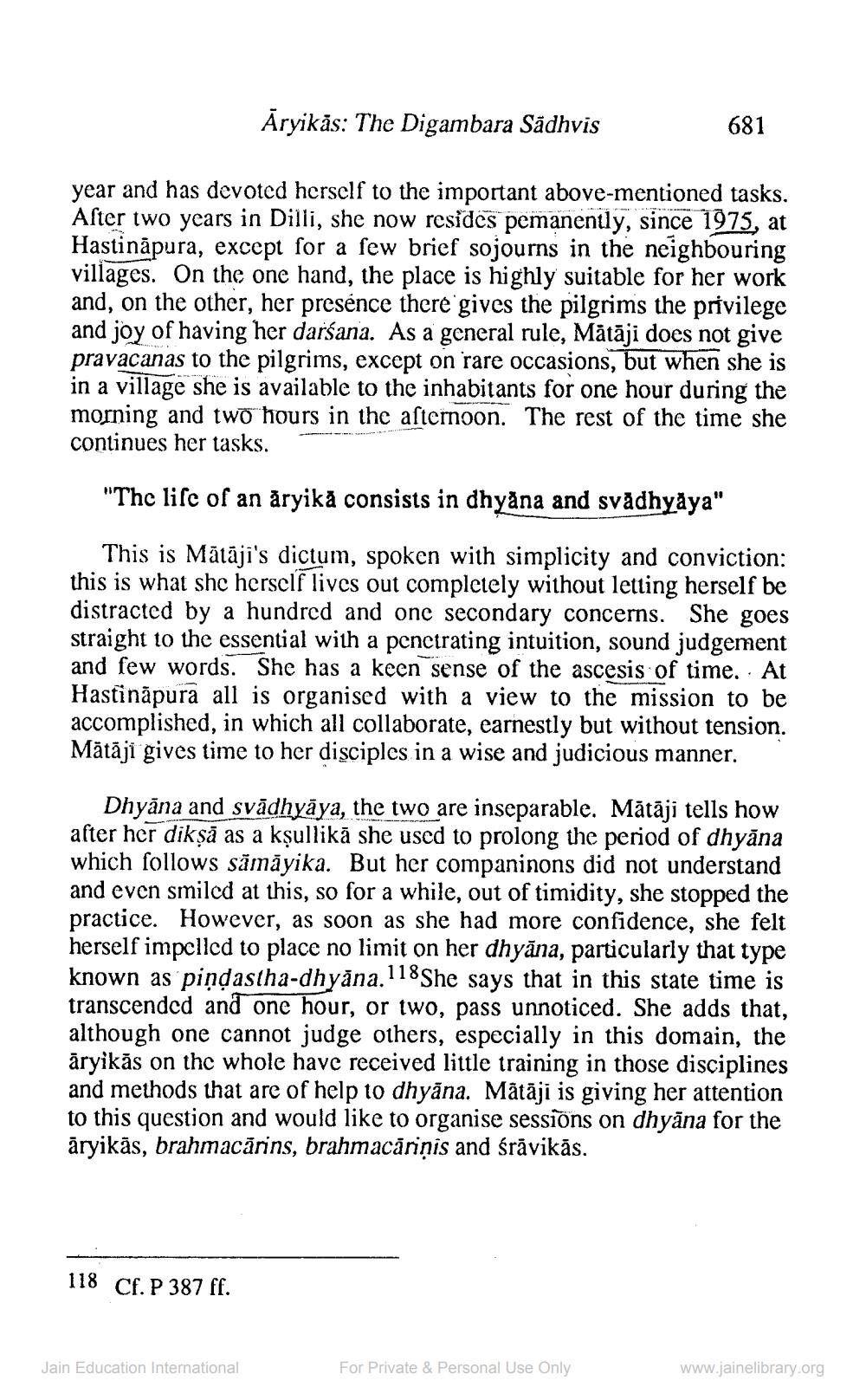________________
Āryikās: The Digambara Sãdhvis
681
year and has devoted herself to the important above-mentioned tasks. After two years in Dilli, she now resides pemanently, since 1975, at Hastinapura, except for a few brief sojourns in the neighbouring villages. On the one hand, the place is highly suitable for her work and, on the other, her presence there gives the pilgrims the privilege and joy of having her darśana. As a general rule, Måtāji does not give pravacanas to the pilgrims, except on rare occasions, but when she is in a village she is available to the inhabitants for one hour during the morning and two hours in the afternoon. The rest of the time she continues her tasks.
"The life of an åryikā consists in dhyāna and svadhyāya"
This is Mātāji's dictum, spoken with simplicity and conviction: this is what shc herself lives out completely without letting herself be distracted by a hundred and one secondary concerns. She goes straight to the essential with a penctrating intuition, sound judgement and few words. She has a keen sense of the ascesis of time. · At Hastināpura all is organised with a view to the mission to be accomplished, in which all collaborate, earnestly but without tension. Mātāji gives time to her disciples in a wise and judicious manner.
Dhyāna and svădhyāya, the two are inseparable. Mātāji tells how after her dikṣā as a kşullikā she used to prolong the period of dhyāna which follows sāmāyika. But her companinons did not understand and even smiled at this, so for a while, out of timidity, she stopped the practice. However, as soon as she had more confidence, she felt herself impelled to place no limit on her dhyāna, particularly that type known as pindastha-dhyāna.118She says that in this state time is transcended and one hour, or two, pass unnoticed. She adds that, although one cannot judge others, especially in this domain, the āryikās on the whole have received little training in those disciplines and methods that are of help to dhyāna. Mātāji is giving her attention to this question and would like to organise sessions on dhyāna for the āryikās, brahmacārins, brahmacāniņis and śrāvikās.
118 Cf. P 387 ff.
Jain Education International
For Private & Personal Use Only
www.jainelibrary.org




